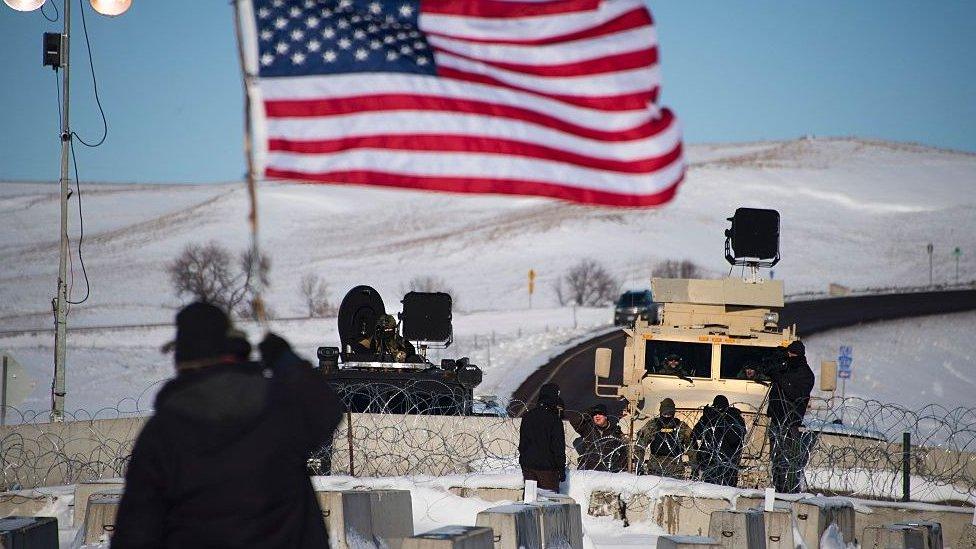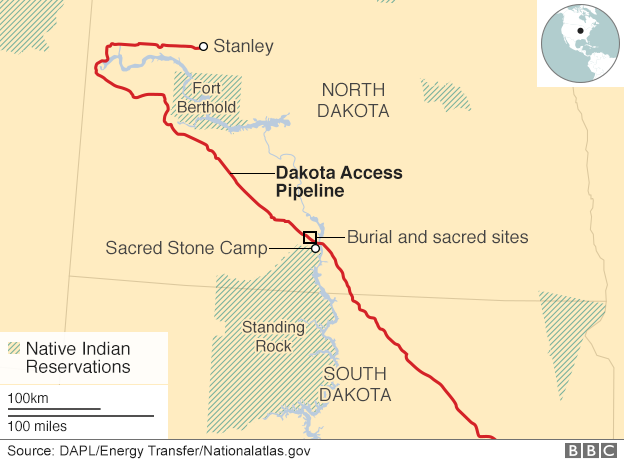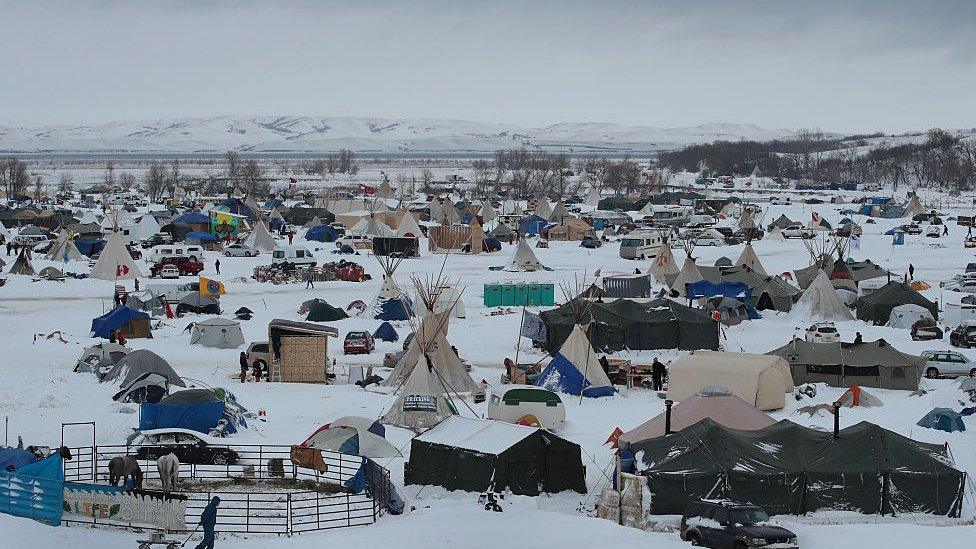Dakota Access Pipeline to win US Army permit for completion
- Published

Protests have repeatedly broken out near the pipeline's proposed path, near tribal lands
The US Army has informed Congress that it will grant permission to complete the controversial Dakota Access Pipeline near tribal territory.
The notice comes after Donald Trump formally backed the project last month in one of his first acts as US president.
Thousands of predominantly Native American protesters have boycotted the $3.8bn (£3bn) pipeline's construction in the state of North Dakota.
The Standing Rock Tribe vowed to fight the decision in court.
Trump backs Keystone XL and Dakota Access
Dakota Pipeline: What's behind the controversy?
The 1,172 mile (1,886km), four-state project is almost finished except for a one-mile stretch under Lake Oahe in North Dakota, where demonstrators have set up protest encampments.

The Army's statement on Tuesday said: "The Department of the Army announced today that it has completed a presidential-directed review of the remaining easement request for the Dakota Access pipeline, and has notified Congress that it intends to grant an easement."
Easement is a special permit that allows a company to cross private land.
Final approval is expected to be announced as soon as Wednesday.
Standing Rock Sioux lawyers said approval of the project cannot be "legally granted at this time".
But North Dakota's two US senators welcomed the Army's announcement.

James Cook, BBC North America correspondent
The BBC's James Cook visits the Standing Rock camps
As the spring thaw approaches, opponents of the pipeline who have maintained their protest through the bitter winter months are full of fighting talk.
There has been a great deal of activity at the main Oceti Sakowin site on the Cannonball river as its occupants strike camp in preparation for annual flooding.
An attempt to set up an alternative camp on land owned by the pipeline company Energy Transfer Partners was short-lived, and resulted in 75 arrests (taking the total since August close to 700) but at least three new camps have been established in recent days.
Among those arrested was Chase Iron Eyes, a prominent member of the Standing Rock Sioux tribe who says he is facing five years in jail on charges - which he denies - of inciting a riot and criminal trespass.
Mr Iron Eyes and other tribal leaders have issued a call for "water protectors" - as the demonstrators call themselves - who left for the winter to return.

Heidi Heitkamp, a Democrat, said the decision brought "certainty and clarity", while John Hoeven, a Republican, said the pipeline would serve the nation's need for new energy infrastructure.
Environmental groups, including Greenpeace, the Sierra Club, and the Center for Biological Diversity, issued statements criticising the decision.
They accused the Trump administration of putting corporate profits ahead of Native Americans and the environment.
Nearly 700 people have been arrested since protests first began last year, according to law enforcement officials.
Just last week 76 protesters were arrested after refusing to leave land owned by the energy company.

Protests have raged in the North Dakota plains
The proposed crossing point for the pipeline is upstream from the tribe's territory, raising fears that any rupture could threaten drinking water supplies.
The pipeline's owner, Dallas-based Energy Transfer Partners, says the project is safe.
In September, the Obama administration announced that it would not allow the project to proceed.
Just before President Trump's inauguration, the Army Corp of Engineers took steps to launch a full environmental impact study of the project.
But days after the new Republican president took office he issued a memorandum ordering the Army "to review and approve in an expedited manner".
Pipeline supporters say it will allow North Dakota oil to be transported more cheaply, allowing the US industry to better compete with Canada.